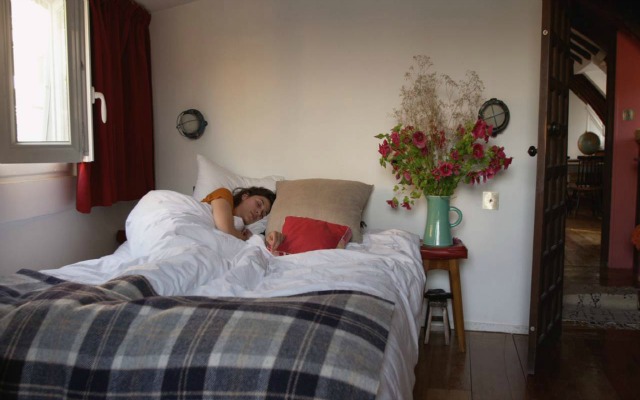Chicago To Vote On Airbnb Crackdown Next Week
By Gwendolyn Purdom in News on May 11, 2016 9:10PM

Airbnb
Updated Thursday, May 12.
A new city ordinance would crack down on Chicagoans who rent out their properties through booking sites like Airbnb. But some are concerned that the ordinance, which is up for a City Council vote next week, won't goes far enough, especially in gentrifying neighborhoods.
Mayor Rahm Emanuel is pushing the ordinance, which would require any unit rented out for more than 90 days a year through Airbnb or similar services to be regulated as a commercial property. Supporters of the ordinance are hoping it divides occasional rental hosts from those who are renting out whole buildings year-round without the regulations hotels and other vacation rentals are required to follow. The ordinance will also add a 4 percent surcharge to online rentals, with that tax going to fund homeless services.
According to the Illinois Hotel and Lodging Association, which released a detailed analysis of Airbnb’s business this year, the ordinance would make some smart changes like requiring liability insurance, but the 90-day cut off still leaves too large a swath of Airbnb hosts unchecked.
“Lodging is a serious business because it involves the safety of visitors,” IHLA CEO Marc Gordon said in a statement to Chicagoist. “It should not be allowed to grow haphazardly and without the oversight and input of residents and their elected officials.”
Updated Thursday, May 12: Airbnb spokesman Christopher Nulty told Chicagoist that the company supports some tougher measures, but thinks it should be easier, not harder, for the Airbnb users who share their primary residence with short-term renters to do so.
"We support tougher tools to curb nuisances and providing neighbors with the resources to report potential bad actors to Airbnb so that we can take action," he said. "For the more than 80 percent of our hosts in Chicago who are sharing their primary residence, we believe that any regulatory approach should make it easier, not harder, for them to share their space in order to make ends meet."
Nulty also disputes the accuracy of the IHLA study, calling it an attempt by the hotel industry to "mislead and manipulate" consumers.
Some city residents have other concerns, beyond the safety of Airbnb users and the advantages booking sites give temporary renters over licensed hotels. Lauren Dean, of Logan Square, lives across the street from a four-unit building and at least three other units that she believes are being constantly rented out as short-term rentals by their owner. Her biggest concern is how this practice will impact the neighborhood's affordable housing market. Instead of being available for locals to live in, units are being marked up and rented by different rowdy out-of-towners each weekend, driving up property values and squeezing families out of the area.
Deans says she and other neighbors have little recourse to deal with the problem, especially since their alderman, Joe Moreno, has been very public in his support of fewer regulations. Moreno even penned an op-ed in last Wednesday’s Sun-Times on how much tourist revenue home-sharing can bring to a neighborhood.
“I understand the desire from the aldermen to increase the spending in the neighborhood from tourists, but what good is that if none of your residents can stay in the neighborhood?” Dean said.
The ordinance would be a step in the right direction in Dean’s opinion, especially since someone like her neighbor would fall into the 90-day classification. But because homesharing is such a big issue, Dean says she thinks the city needs to get a better handle on overseeing these properties in general.
“I feel like the city hasn’t really figured out how to keep up with Airbnb’s growth, and they don’t really have a system [in place],” Dean said.
The committee vote is set for next Tuesday, and the full council will consider the ordinance next Wednesday. The Chicago Tribune published an in-depth look at the issue this week that's worth a read.